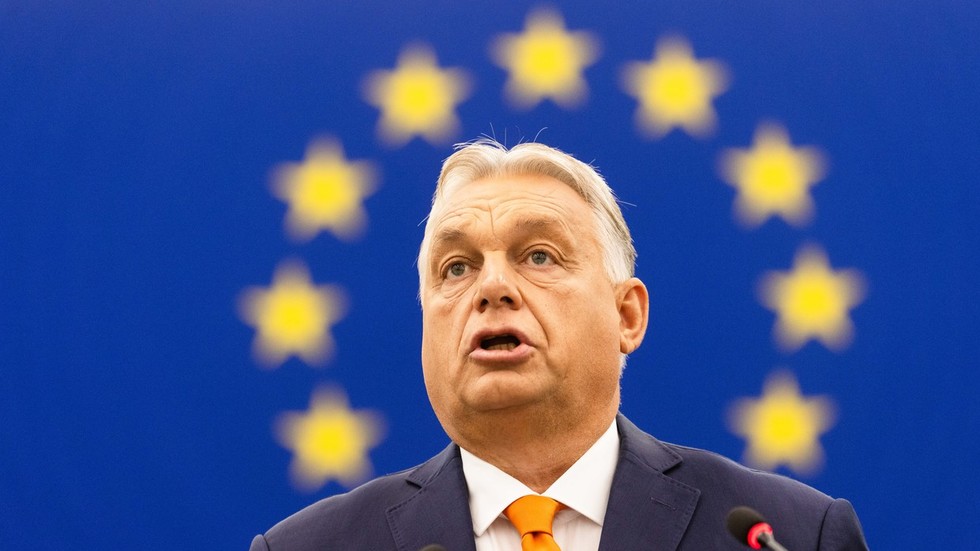Hungarian Prime Minister Viktor Orban expressed deep concern regarding Ukrainian President Volodymyr Zelensky’s recently unveiled ‘victory plan’ that seeks to reshape Ukraine’s position in the ongoing conflict with Russia. Orban described the plans being discussed privately and revealed to the Ukrainian Parliament as “terrifying.” Central to Zelensky’s proposals is an invitation for Ukraine to join NATO, the removal of restrictions on the use of Western-supplied long-range weapons for strikes into Russian territory, and the deployment of a “comprehensive non-nuclear strategic deterrence package” on Ukrainian soil. Orban criticized the European Union’s approach to the conflict, suggesting that it is poorly organized and that the current strategies have failed, emphasizing that they are “losing this war.”
Orban’s perspective indicates a shift in focus from military strategies towards a peaceful resolution of the conflict. He argues that the current approach is inadequate and calls for a reevaluation of tactics, insisting that further military engagement and the introduction of more advanced weapons are not the solutions. Instead, he advocates for a ceasefire and immediate peace talks. The Hungarian Prime Minister’s approach underscores a growing sentiment among some European leaders who are questioning the effectiveness of continuing to support Ukraine militarily without substantial diplomatic efforts to resolve the conflict.
In discussions at a recent EU leaders’ meeting in Brussels, Orban expressed his intent to persuade key European leaders, including German Chancellor Olaf Scholz and French President Emmanuel Macron, to engage in negotiations with Russia on behalf of the EU. His statements come at a time when Zelensky has also arrived in Brussels, hoping to advocate for his ‘victory plan’ among EU leaders. Zelensky has contended that his strategy aims to empower Ukraine and facilitate a diplomatic resolution to the conflict, emphasizing that it relies on the determination of Ukraine’s partners rather than on any concessions from Russia.
Responses to Zelensky’s proposals have been mixed. Russian officials have dismissed the outlined plans, with Foreign Ministry spokeswoman Maria Zakharova labeling them as incoherent and suggesting that they demonstrate a lack of understanding regarding the complexity of the situation. Kremlin spokesman Dmitry Peskov indicated that the plan appears to be an invitation for continued warfare rather than a genuine path toward peace. He stresses that a resolution is possible only when the Ukrainian government embraces the realities that led to the current hostilities.
The overarching message from Orban and those sympathetic to his viewpoints is a call for an immediate change in strategy. Orban’s insistence on facilitating peace talks signifies a pivotal moment in the EU’s approach to the Russia-Ukraine conflict. He believes that the emphasis should shift towards de-escalation and negotiation rather than escalation through increased military support and weaponry. This represents a critical viewpoint within the broader context of the ongoing war, suggesting that a prolonged conflict without diplomatic engagement might only exacerbate the situation for all parties involved.
As the situation unfolds, it remains uncertain whether Zelensky’s proposal will gain traction or if calls for peace negotiations will dominate the conversation within the EU. Nonetheless, the complexity of the conflict necessitates dialogue, and leaders like Orban are advocating for a reconsideration of strategies that prioritize peace and negotiation over militaristic approaches. This debate within European leadership mirrors the urgency of responding to an evolving geopolitical landscape where the costs of continued conflict are increasingly evident.

